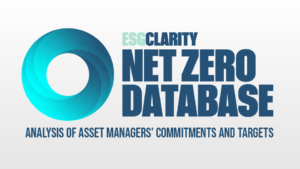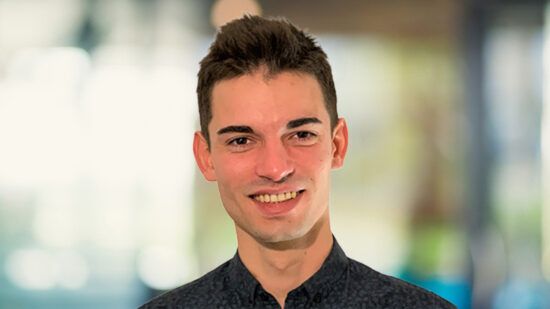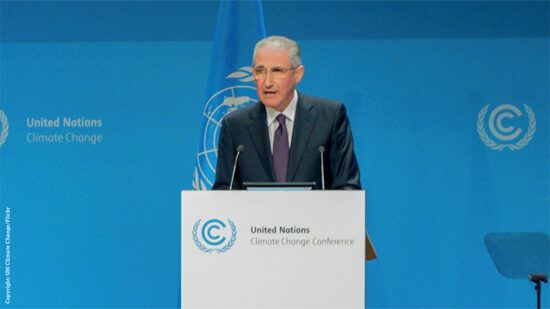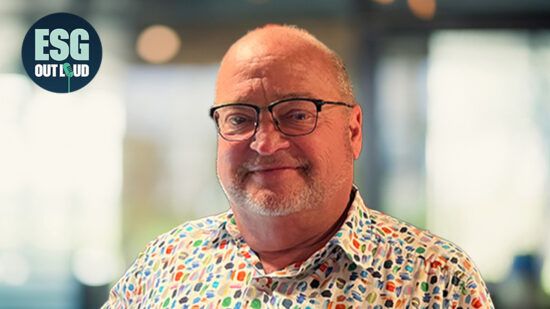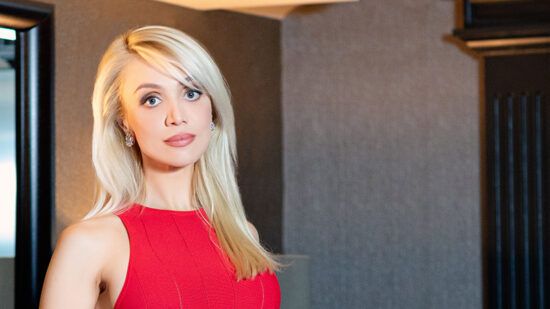In this Green Dream video interview, Richard Fernand, head of course and certificate management at CFA Institute, explains the thinking behind the CFA Institute’s latest learning programme – the Climate Risk Evaluation and Investment Certificate – from concept and inception, to its application in a real world context in terms of its “cohort model” where professionals are encouraged to collaborate.
More broadly, he discusses the steps the CFA Institute takes to keep courses relevant in a rapidly changing investment disclosure landscape.
Watch the full video interview above and read the transcript below.
MN: Hello and welcome to another entry in PA Future’s Green Dream series. My name’s Michael, and joining me today is Richard Fernand, head of course and certificate management at the CFA Institute. Richard, nice to meet you. It’s great to be able to chat with you today.
RF: Thanks so much for inviting me.
MN: Last November, the CFA Institute launched the Climate Risk Evaluation and Investment Certificate, with the first uptake recently beginning the course. What was the impetus behind the creation of this new certificate, and what’s different about it in comparison to the other certificates you’ve launched such as the certificate in ESG investing?
RF: So that certificate on ESG investing certificate we launched back in 2019, and the success of that product is what has given us the impetus to launch the new one. So, people might not be aware of this, but it’s actually the biggest sustainable investing qualification in the market globally. So, there are currently 17,000 active learners in that certificate, and they’re all learning these foundational concepts across the E, the S and the G of ESG. And it was through conversations with those learners and through industry participants that we identified a need to develop specific skills, particularly in E – environmental – and actually specifically around climate. It was really those conversations that helped us to develop the climate certificate with a focus on some really specific skills that you need if you want to be an investment professional dealing with the climate disclosures we’re seeing coming out from corporates now.
So, you asked about differences. I guess some key things to talk about are that the ESG certificate is foundational, it’s really about giving you confidence of knowledge to be able to read articles, understand them, have a conversation with a client, but knowledge focused. Our new climate certificate is really about applied skill. So, we’re going to give people the skills to be able to critique a transition plan from a corporate, integrate climate disclosures into their valuation and analysis, tweak their models. So, it’s really about practical hands on skills. So, the level is very different.
The way in which we teaching it is also different. So, for our climate certificate, we’re introducing what we call a ‘cohort model’, and that really means there’s an opportunity for learners to interact with other people, other investment professionals going through the program, to exchange ideas, exchange best practice, in addition to studying themselves and going through exercises themselves, but also gives the opportunity to interact and, to some extent, work with other people. And the reason we think this is really important is because we recognise that, particular climate, no single person or no single corporation has all the answers about how to do this. This is a new and evolving space, so best practice is evolving. And we feel that by connecting professionals together, we’re able then to enable them to share best practices, share their experiences, and actually collectively, we can get to a better result for everyone. So, that cohort thing is really important.
With that too comes a recognition that we’re trying to give people higher-level applied skills. And so the way in which we set work assignments and assess is very different to what people might have seen if they’d done, say, the certificate in ESG investing. That’s what we might call a ‘traditional’ style textbook and an exam. Whereas our new climate certificate, you have assignments which are real world type assignments, the kind of things you might be doing at your desk, you’re going to be reviewing other people’s work, you’re going to be discussing things. So, there’s a whole raft of ways in which you engage with the content, which is just far more relevant to someone who’s trying to figure out how to actually do this stuff. And so the focus, therefore, is just trying to help professionals to deal with this completely, sort of, ever changing environment in which they’re facing these disclosures.
MN: So, with proxy voting season around the corner, which aspects of the learning available through the certificate are you hoping will be on display?
RF: Proxy voting, I guess, is kind of a point in time moment and, while it’s obviously really important, our focus really is on the stuff which happens all year round, primarily really about, if you like, valuation. Now, of course, valuation and proxy votes can be very closely linked because of course, you know, valuation is all about ‘what do you think this individual asset might be worth’, you compare it to a benchmark like the market or transaction price, and then you’re assessing the governance process and the directors recommendations and making your response via voting.
So, voting really is, if you like, the culmination of all of the engagements that you’ve had with a corporate throughout the year, and we’re enabling people to take a critical eye to that corporate engagement. So for instance, when a corporate publishes a transition plan, you don’t just accept it and say yeah, this looks fine, I believe what they say. We can be critical about it, we can compare to other companies, we can see it in the context of national and international obligations, so how does this stack up. And then equally apply that thinking to the kinds of risks that a company might be facing, how those might affect its cash flows. And so, very much, we want our people to be thinking throughout the year about these kinds of issues and to have both a framework and a strategy for thinking about the kinds of climate related issues that they’re going to face in their analysis. And then, of course, that will play out in how they choose to exercise their votes.
MN: With the courses that are available through the certificate, are they fixed or is there sort of a flexibility to adapt and evolve them, based on the feedback you receive but also the changing risk landscape?
RF: With all of our educational products, we take a really active approach to change and evolve them, and we do that through what we call practice analysis. And that means we engage with a very substantial network of market practitioners who do two things for us. First one is when we’re creating a new program, they tell us about the elements that they feel are important, and they’re able to road test that with the market. But secondly, they’re also telling us about the new things, the evolving things. And we do this at a sort of a worldwide level. We also do this on a specific product level. So as an organisation, we get inputs about what is changing and what is happening. And then for individual products, we’re also getting inputs about what do we need to do to tweak and evolve this. So there’s nothing static about our programs.
One of the great things actually about the way in which we’re able to deliver this climate certificate is we are able to deliver it and make adjustments very, very rapidly. I mentioned mechanical experience earlier, actually, and part of that does involve some live sessions. And one of the reasons we wanted to include live sessions is because live sessions from market practitioners enable us to make adjustments to events that are happening, maybe even that week. Getting a practitioner to talk about what’s happened, how it’s impacted their analysis, how they’re dealing with it. So, the simple answer is absolutely we evolve, we know it’s necessary and we’re in fast moving, deliberately fast moving areas. If we don’t evolve, our products simply won’t maintain relevancy. So, evolution is absolutely critical for us.
MN: More broadly, how have you updated the main CFA program curriculum to reflect the fact that sort of responsible, sustainable and socially conscious investment strategies are becoming increasingly mainstream?
RF: It’s very interesting question. I think a lot of probably people don’t realise that the G of ESG, the governance bit, has been in CFA programs for decades, and actually we were one of the first organisations to really emphasise its importance in terms of evaluation of portfolio management. Understanding governance is a really critical indicator to a firm’s performance. So G’s been there a long, long time. And over recent days we’ve absolutely added to that bolstered that by looking at ESG and SRI and actually incorporating it throughout the program. So we incorporate aspects of this at levels one, two and three. But at the same time, we recognise that the CFA program, it is a generalist program, it’s intended to be such. So, as generalists, we give people the kind of knowledge they have an expectation of having as a generalist, and be out there able to have sensible conversations with clients and so on.
Separate to that, we also offer the specialist certificates – certificate in ESG investing, the climate certificate – and there may be more to follow in future, by the way. Little alert spoiler there. So, with these special certificates, we’re recognising that some people want to go further and devote more time to learning additional material that we couldn’t cover within a generalist program like CFA. But yes, absolutely conscious that this is a theme that is clearly just embedded in the investment world. And so absolutely, we cover it within ESG and give it a very, very fair level of coverage across all three levels.
MN: I shall look forward to further announcements then. And then on to the last question that we always have, sort of and end these green dreams with. There’s always quite an interesting answer from our guests. What’s your favourite sustainable food and/or drink?
RF: Well this is one I would highly recommend it to everyone actually, which is elderflower cordial, but I would recommend homemade elderflower cordial. I go out essentially early summer – May/June in the UK, at least – and I go and cut elderflowers. I go to my local cemetery, I’m not sure if I’m actually allowed, but no one seems to mind. And elderflowers are one of those things that may be regarded as sort of a weed or even maybe a nuisance of some sort, they just grow prolifically, but it makes it really easy find them and to cut these flowers, and they smell really lovely, very fragrant. And you just really boil them up in some water and sugar and then strain what you get and you make a really delicious cordial. You never run out of elderflowers, you know, not in the UK at least. So yeah, I really recommend that, try making it yourself.
MN: Fantastic. Sounds simple enough, I’ll give it a go. It’s been great chatting with you, Richard. Thank you so much.
RF: Been a pleasure.


